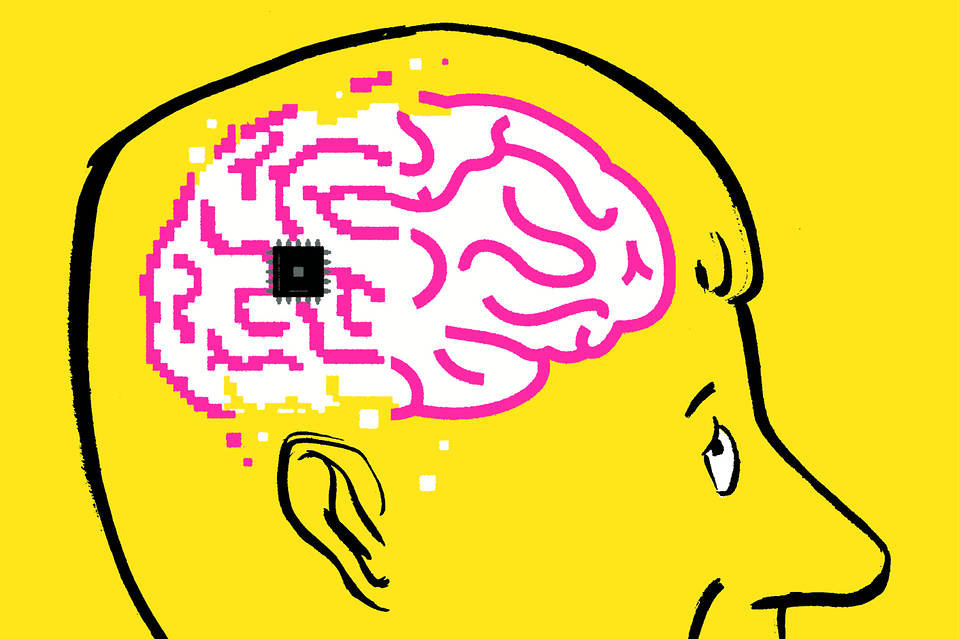
Netease Technology News October 20 news, neuroscience can make the dream of science fiction become a reality, but the brain-interface technology pioneer, Duke Neuroengineering Center co-director (Miguel Nicolelis) recently published an article in the Wall Street Journal warned that this category Technology can change our brains, causing compassion, intuition, socialization, and other things that define humans to be weakened or even erased.
The following is the main content of the article:
On June 12, 2014, with the attention of 1.2 billion people worldwide, a young guy named Juliano Pinto stood on the field and kicked off the Brazilian World Cup. That kick was unremarkable, but it came from a person who had been under the waist for nearly a decade. With a robotic exoskeleton that allows him to control through his brain, he can kick the ball a few feet away.
At that moment, it was a culmination of 20 years of research work on brain-computer interface technology. That is a research area that I and my colleagues started at Duke University.
My colleagues and I believe that we can apply the neuroplasticity we study (the ability of the brain to change over time) to various neurological diseases, including Parkinson's disease, epilepsy, stroke, and cerebral palsy. Even autism. Scientists from college labs and Silicon Valley companies are studying two other ideas born in my lab: connecting the brain to form a network, and developing a means of communication so that people can communicate information directly to each other through the brain.
But creating the brain network - the concept in science fiction - is not without risk. Once the brains are connected, they may become a system that can be controlled so that the ideas of the connected individuals can be acquired and their actions can be manipulated. In fact, this has been proven to be done. In 2013, two computer scientists at the University of Washington sat in two different rooms wearing hats that connected their brains through the Internet. The two have to cooperate to play a video game involving firing. Scientist A has a controller, but he can't see the screen; Scientist B sits in front of the screen, but no controller. Every time when scientist B wants to open fire, he will imagine this movement. Scientist B's fingers will twitch unconsciously and use weapons to open fire.
Imagine if the weapon is real, not virtual, what consequences it will bring - this reality may not be far away from us. Like poison gas and other weapons of mass destruction, the military use of brain-computer interfaces should also be prohibited by the international community.
The combination of brain and computer also produces a less dramatic but potentially more destructive result. Computers can't innovate, have no intuition, and have no ability to discover. We humans organize all those things and other things. The brain has plasticity and adaptability, but ironically, it may also lead to its destruction. After connecting to a computer, the brain adapts almost immediately, taking in the features of the machine and mimicking its binary decision-making process.
Our brain does not even need to connect directly to computers to do these things. Constant exposure to computers can have this effect. A study found that if people know that specific information is on the Internet, they will slowly forget about that information - including their address and mobile number. This may not be a serious influence, but it shows the symptoms of a problem that has already caused us to pay for it in our daily lives. When the various professionals from the radiation therapist to the pilot become dependent on the digital system, their ability to perform tasks without assistance is reduced. In 2011, a report from the Federal Aviation Administration (FAA) stated that "automated addiction" had caused 51 accidents in the previous five years, resulting in hundreds of deaths. As a result of the brain's attempt to replicate digital computers, the main parts of human nature - compassion, intuition, creativity, improvisation, aesthetics, social skills - may be reduced or even wiped out by the brain.
A paradoxical lesson I learned in the course of nearly 30 years of using technology to solve problems is that technology will not solve all our problems. The human brain should be honored as something fine and unique. We need to rethink the role of digital systems in education and ensure that humans - not machines, or humans connected to machines - control the creative and decision-making processes of art, science, politics, and everything that defines us. Digital technology can never surpass our brains - but it can shape and change our brains, which is its most dangerous place. (Lebang)
IT System Isolated Power Distribution
It System Isolated Power Distribution,Medical It Isolated Power System,Industrial It Isolated Power System,Healthcare Insulation Monitor
Jiangsu Acrel Electrical Manufacturing Co., LTD. , https://www.acrel.com.pk
